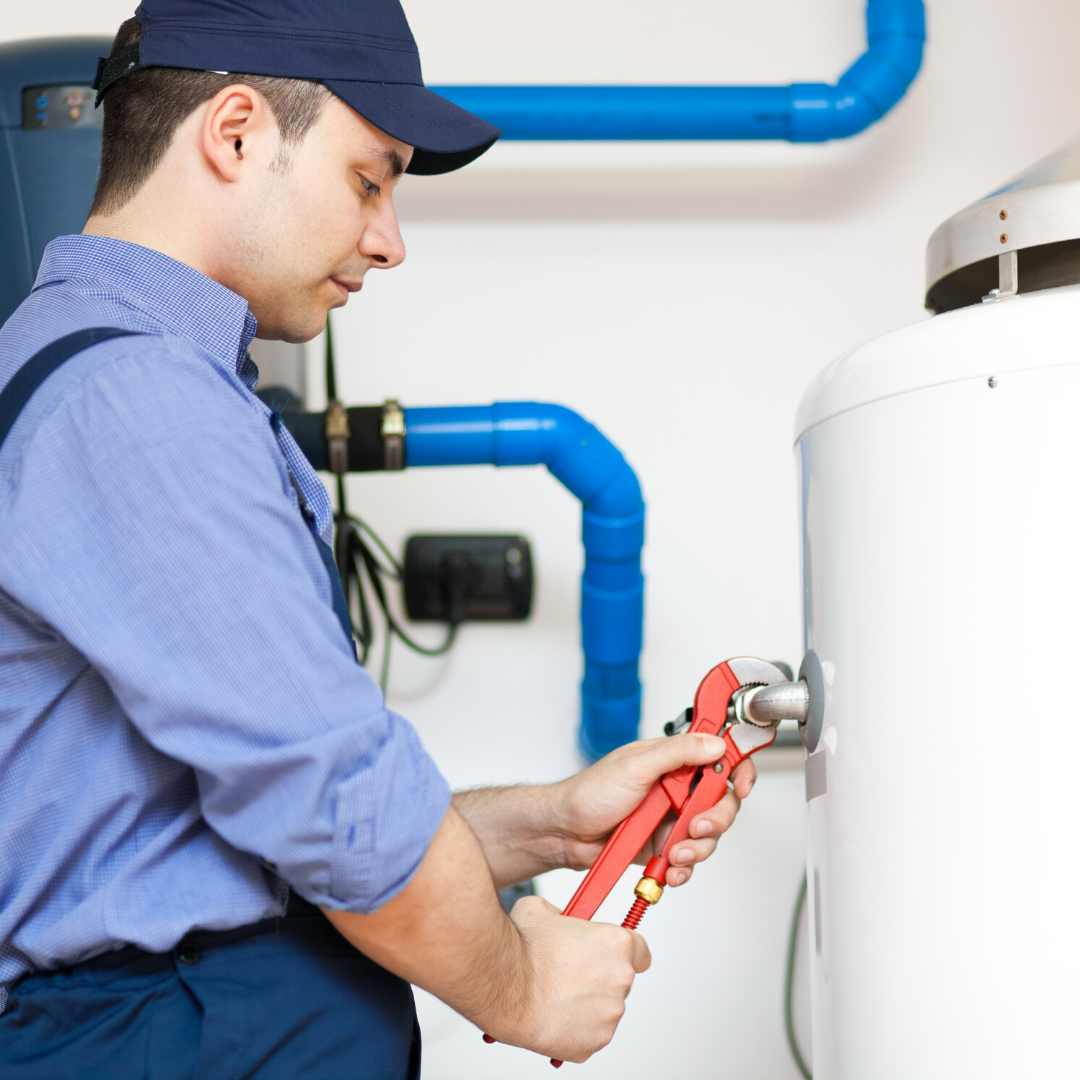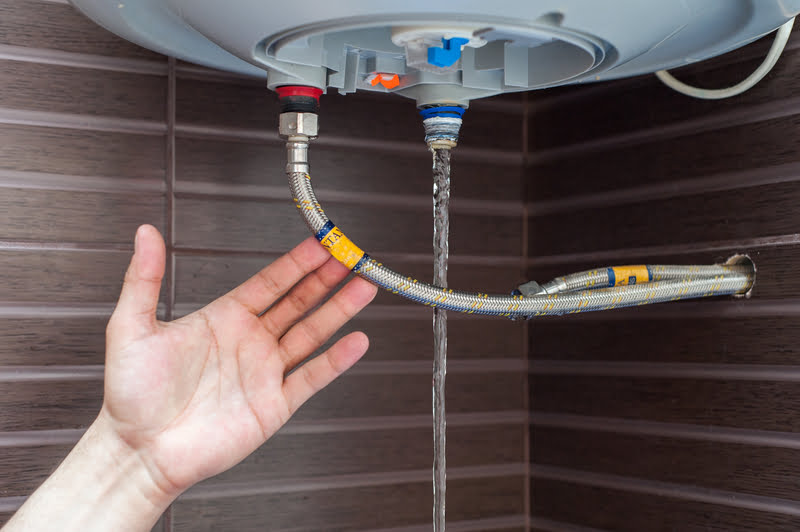What are your ideas regarding The Importance of Water Heater Maintenance?

A hot water heater is just one of the most important basic devices that can be found in a home. With water heaters, you do not require to experience the stress of heating water by hand every time there is a demand to wash, do the laundry, or the dishes. There is constantly a possibility that your water heating system would act up as with a lot of mechanical tools.
It is very important to note any type of little breakdown and tackle it swiftly prior to things get out of hand. The majority of times, your hot water heater begins to malfunction when there is an accumulation of debris as a result of constant use. As a safety measure, routine flushing of your hot water heater is advised to prevent debris buildup and protect against functional failing.
Usual water heater emergency situations and also how to take care of them
Dripping hot water heater container.
In this circumstance, you ought to turn off your water heating system, allow it to cool down, as well as carefully look for the source of the issue. At times, all you require to do is to tighten up a few screws or pipe links in instances of small leaks. If this does not function and the leak continues, you may require to use the solutions of a specialist for a suitable substitute.
Changing water temperature level.
Your hot water heater can begin generating water of various temperatures usually ice cold or scalding warm. In this situation, the first thing you do is to make sure that the temperature level is readied to the preferred level. If after doing this, the water temperature level maintains altering during showers or various other tasks, you may have a defective thermostat. There could be a demand to replace either the home heating or the thermostat system of your water heater.
Insufficient warm water
Managing a not enough supply of warm water can be aggravating. It may be that the hot water heater can't sustain the warm water need for your apartment. To handle this issue, you might try to change your heating system's temperature dial and wait for a few minutes. You can ask for the aid of an expert plumber if the issue persists. Alternatively, you can update your water heater to one with a bigger capability.
Tarnished or stinky water
You need to recognize if the concern is from the tank or the water source when this happens. If there is no amusing scent when you run cold water, then you are certain that it is your hot water heater that is malfunctioning. The stinky water can be caused by rust or the buildup of bacteria or sediments in the water heater container. You can try flushing out your storage tank or changing the anode if the trouble persists once you see this. The function of the anode is to clean bacteria from your tank. Since the anode pole replacement needs a detailed expertise of your water heater, you will require the assistance of a specialist.
Final thought
Some house owners disregard little warning and also minor faults in their hot water heater unit. This only brings about further damage and a feasible total failure of your device. You should manage your hot water heater faults as quickly as they come up to stay clear of more expenditures and also unnecessary emergency troubles.
With water heating systems, you don't need to go with the stress of home heating water by hand every time there is a requirement to take a bathroom, do the washing, or the dishes. Your water heating unit could begin generating water of various temperature levels generally ice cool or hot hot. It might be that the water heater can not sustain the warm water need for your home. If there is no amusing scent when you run chilly water, after that you are particular that it is your water heating unit that is faulty. The smelly water can be created by rust or the accumulation of germs or sediments in the water heating system tank.
Water Heater Burst: Why This Happens And What To Do Next
Water Heater Explosion Warning Signs
Since storage water heaters are made of metal and store large volumes of heated water, they carry an increased risk of leaking or even exploding as they begin to rust at the fittings and seams over time. If the thermostat controlling the water temperature within the tank is faulty, or if mineral buildup inside the water heater prevents the thermostat from sensing the water’s temperature correctly, the water could become overheated. This will expand its volume within the tank, causing it to press at the tank’s fittings and seams. If these fittings and seams are rusted or corroded, the pressure could result in a leak or even an explosion.
Here are some risk factors and warning signs of an increased risk of water heater leak or explosion:
Your water heater is more than 10 years old. Your water heater makes clanking, banging or rumbling noises as it heats up, indicating that sediment has built up and hardened inside the tank. There is visible rust on the outside of the water heater, especially located at the pipe fittings or the seams that run down the tank. There is rusty water coming from your water heater, indicating that there may be rust building up inside. Your water heater is leaking, which could indicate either a crack somewhere in the tank or a malfunctioning temperature-and-pressure (T&P) relief valve. What To Do When Water Heater Leaks
If you find water dripping or seeping out of your water heater, or pooling around it, it means your water heater is leaking. If you find a leak, it may be best to call a plumbing professional to diagnose the problem and determine how best to handle it. If you choose to tackle it on your own, there are a few things you can do.
TURN OFF THE POWER
Next, shut off the power to the hot water tank at your home’s electrical breaker box. If you don’t shut off the power, the heating elements within the tank could continue to stay hot, which could pose a fire risk.
If you have a gas-powered water heater, you’ll also need to shut off the gas line leading into the tank.
FIND THE LEAK
Now it’s time to determine where the leak is coming from. Likely locations are the T&P valve, the drain valve or one of the pipes or fittings that feed into the top of the tank. If you see any rust or corrosion on the outside of your water heater’s tank, pipes or fittings, these could also be the source of the leak.
REPAIR THE LEAK
Once you determine the source of your water heater leak, you’ll have a better idea of what steps you need to take to fix the problem. It may be a simple fix—such as using a wrench to tighten fittings or replacing the T&P valve—but it may be something more complicated. You may even need to drain the tank, remove the water heater and install a new one.
https://www.abchomeandcommercial.com/blog/water-heater-burst/

I discovered that review on Warning Signs You Need Water Heater Repairs when looking around the search engines. Do you know about anybody else who is fascinated by the niche? Be sure share it. I praise you for your time. Visit again soon.
Start Now